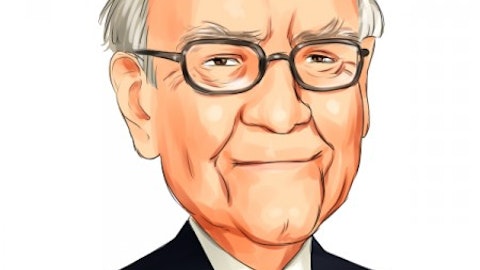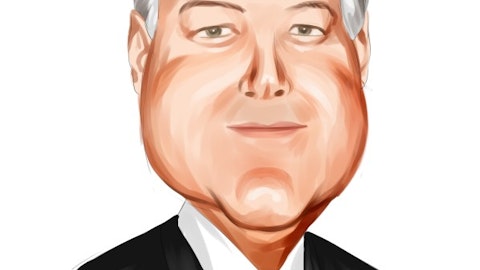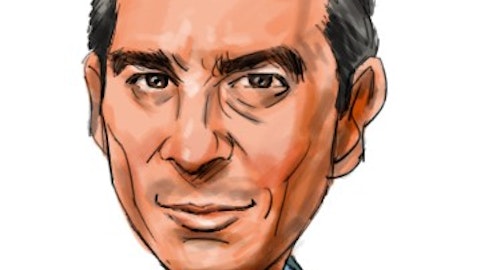There are growing concerns that the increased usage of stock options as employee compensation has pushed management teams to move away from a long-term mind-set toward quarterly performance. In different words, executives tend to focus on reaching Wall Street expectations rather than on the true long-term performance of their companies. The fast-increasing expansion of stock options as compensations has also distorted the data on insider trading behavior, which makes the insider selling activity less relevant to most market participants. Nonetheless, if I were pouring my hard-earned capital into a company’s stock for a medium- to long-term horizon, I would have been alarmed by high volume of insider selling at that company. Although insiders can cash out their holdings for a wide range of reasons, including diversification purposes or personal cash needs, monitoring insider selling activity should still play a key role in one’s stock analysis process. The Insider Monkey team pinned down three companies that registered noteworthy insider sales last week, so this article focuses on analyzing those trades.
Prior to discussing the insider trading activity, let’s make you familiar with what Insider Monkey does besides providing high-quality articles. At Insider Monkey, we track hedge funds’ moves in order to identify actionable patterns and profit from them. Our research has shown that hedge funds’ large-cap stock picks historically underperformed the S&P 500 Total Return Index by an average of seven basis points per month between 1999 and 2012. On the other hand, the 15 most popular small-cap stocks among hedge funds outperformed the S&P 500 Index by an average of 95 basis points per month (read more details here). Since the official launch of our small-cap strategy in August 2012, it has performed just as predicted, returning 102% and beating the market by more than 53 percentage points. We believe the data is clear: investors will be better off by focusing on small-cap stocks utilizing hedge fund expertise (while avoiding their high fees at the same time) rather than large-cap stocks.
Costco Wholesale Corporation (NASDAQ:COST) had not seen any insiders sell stock for more than four years until last week. Director James D. Sinegal, co-founder and former CEO of Costco, unloaded 50,000 shares on Friday at a weighted average price of $160.00, cutting his direct ownership stake to 848,544 shares. The Director also holds an indirect ownership stake of 804,018 shares. Executive Vice President and Chief Information Officer Paul G. Moulton sold 19,095 shares on Thursday at prices in the range of $161.37-to-$163.26 per share and currently holds 68,539 shares. The shares of Costco Wholesale Corporation (NASDAQ:COST), which operates nearly 700 membership warehouses, have advanced nearly 13% in 2015 and more than 120% over the past five years. The retailer’s success in cutting long-term costs has enabled the company to offer low-priced products, which has in turn resulted in higher sales volumes and rapid inventory turnover. Costco’s member renewal rate reached roughly 91% in the United States and Canada, and roughly 88% on global basis in 2015. Furthermore, the company’s net sales in 2015 grew $3.45 billion or 3% year-on-year to $113.67 billion, thanks to additional warehouse openings and an increase in comparable warehouse sales. However, the stock is trading at a relatively rich trailing price-to-earnings ratio of 30.02, which compares with the average of 22.73 for the S&P 500 benchmark. Warren Buffett’s Berkshire Hathaway held its position in Costco Wholesale Corporation (NASDAQ:COST) unchanged at 4.33 million shares during the third quarter.
Follow Costco Wholesale Corp W (NASDAQ:COST)
Follow Costco Wholesale Corp W (NASDAQ:COST)
Receive real-time insider trading and news alerts
The second page of this daily insider trading article discusses the insider sales registered at Oasis Petroleum Inc. (NYSE:OAS) and Mohawk Industries Inc. (NYSE:MHK).





